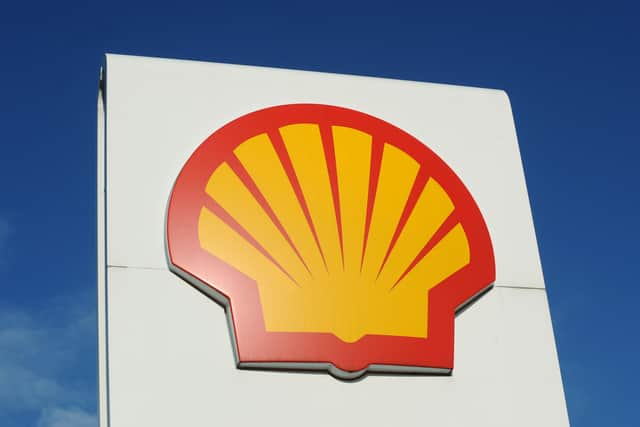Shell expects to see gas trading fall after an ‘exceptional’ end to 2023
The company saw its annual profits fall in 2023 compared with the previous year when soaring oil prices drove profits to an all-time high.
But its performance picked up in the final quarter with underlying earnings, including taxes, boosted by 17 per cent compared with the previous three months to more than £5.6bn.
Our business newsletter will give you the inside track.


Advertisement
Hide AdAdvertisement
Hide AdIn the latest update to shareholders, Shell said it expects trading in its integrated gas division between January and March to be “strong but significantly lower than an exceptional” final quarter.
Nonetheless, it forecasts it will produce between 960,000 and one million barrels of oil equivalent per day over the first three months of the year.
This is higher than previous guidance, and an increase compared with the 901,000 barrels of oil equivalent produced per day in the fourth quarter.
Meanwhile, trading in its chemicals and products division is set to be significantly higher than in the final quarter, with losses also expected to have trimmed.
Advertisement
Hide AdAdvertisement
Hide AdFor its upstream unit, Shell predicts it will take an exploration write-off of about £475m, mainly in Albania.
Shell’s chief executive Wael Sawan said in February that the group had “made good progress” over the year and was planning to focus on producing “more value with less emissions”.
The oil giant has watered down one of its climate pledges because of a change to its strategy in the electricity sector.
The company will now focus on “value over volume” in the sector and focus more on selling electricity to business customers rather than households.
Advertisement
Hide AdAdvertisement
Hide AdLast month, Shell said it plans to reduce the “net carbon intensity” of the energy it sells by 15 to 20 per cent by 2030 compared to 2016. Its previous target had been to reduce the measure by 20 per cent.
It also dropped a plan to reduce net carbon intensity by 45 per cent by 2035 due to “uncertainty in the pace of change in the energy transition”, although it still intends a 100 per cent reduction by 2050.
Net carbon intensity measures the emissions produced by each unit of energy that Shell sells.
“The biggest driver for reducing our net carbon intensity is increasing the sales of and demand for low-carbon energy,” Shell said.
Advertisement
Hide AdAdvertisement
Hide AdThe business said that it was changing its target after rethinking its approach to the electricity sector.
Commenting on the performance of global markets on Friday, Victoria Scholar, head of investment at interactive investor said: “European markets are suffering today, taking their cues from a sell-off on Wall Street and weakness overnight in Asia.
"On the FTSE 100, oil stocks BP and Shell are bucking the negativity, trading in the green while Ocado, easyJet and Entain are languishing at the bottom of the basket.
“Oil is trading higher, on track for its second weekly gain buoyed by geopolitical uncertainty and the potential for stronger demand on the back of improving economic data.”
Comment Guidelines
National World encourages reader discussion on our stories. User feedback, insights and back-and-forth exchanges add a rich layer of context to reporting. Please review our Community Guidelines before commenting.